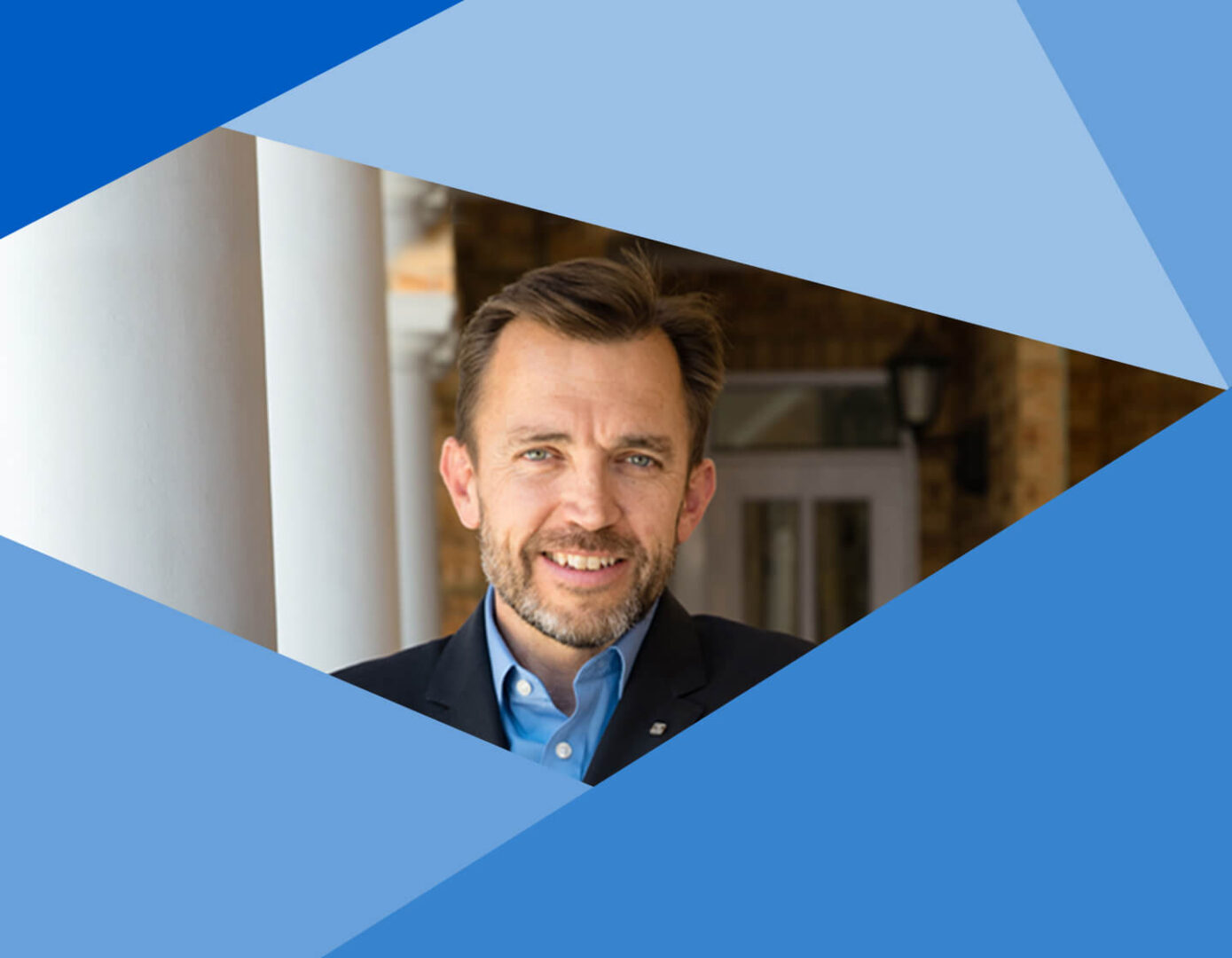
Fresh from the success of COBRA (Covid Business Rescue Assistance), Adam Craker has turned to SAtion, a public private initiative to ease and accelerate South Africa’s digital future.
Building on his experience since last year’s launch of COBRA to help businesses crushed by the pandemic stave off closure, Craker is confident knowledge-sharing, mentoring, investment and innovation can once again be harnessed, this time to digitize business and boost an embattled economy.
“SAtion (whose name blends the acronym for South Africa, SA, with the suffix ‘tion’, used to denote the result of an action) was born out of COBRA and everything that we learned about creating an active ecosystem. Now we’re aiming to improve on that model and approach,” says Craker, who fell in love with South Africa during the Team Initiated Enterprise (TIE) component of his MBA course at IMD.
“SAtion came about because of the visibility generated by COBRA. But while COBRA was launched because of a crisis, SAtion has its origins in opportunity,” he says.
SAtion – an actual word meaning seeding or planting, which conveniently also captures the country’s two initials – came about after Craker and his fellow COBRA founders were contacted by Business Unity South Africa (BUSA), the country’s leading business federation, to stimulate digital progress. “They saw what we had achieved with COBRA and wanted to build on that.”
“The government and trade unions are also on board, and we’ve already identified eight workstreams. Presentations are underway to the entire BUSA community and the relevant government ministry. The stars are aligning between government and business and we’re now on the brink of a new chapter of growth around digitalization and the future.”
Grave economic challenges
While South Africa is the continent’s dominant economy, it is paralyzed by massive challenges. Political mismanagement and corruption have disrupted business, contributing to recession. COVID-19 made matters much worse. Businesses have closed, throwing 1.5 million people out of work, while the death toll has mounted. “When COVID came along, the economy was already severely depleted,” Craker acknowledges.
Creating COBRA was “a spur of the moment decision”, triggered after watching a sombre television address by President Cyril Ramaphosa warning that the country was entering “a state of national disaster.”
“COBRA came about as a consortium of companies committed to helping other businesses and, ultimately, the country as a whole,” says Craker, one of the three founders.
The venture was designed as a network of specialists offering broad expertise to businesses in trouble and helping them to avoid closure with advice and funds. “Business Rescue is South Africa’s version of US Chapter 11 bankruptcy protection. But it’s poorly understood and applied. Unlike the US, the legislation to support companies in trouble, is underdeveloped here. People tend to shun bankruptcy protection, rather than see it as a way of saving jobs and livelihoods,” says Craker, a native Londoner who earned a BSc in management and computer science at the University of Warwick in the UK.
A major success story
COBRA is now South Africa’s largest non-profit organization for distressed companies, with an unrivalled offering through its many partners. The network assists businesses in trouble with services from financial, legal and operational guidance to restructuring, refinancing and accessing unemployment insurance for staff. So successful has the venture been that it has since spurred similar projects in Kenya, Mauritius and India – the latter through connections with IMD alumni.
Created in a virtual world during lockdown, COBRA has already helped about 300 businesses and saved more than 2,000 jobs. Registered as a not-for-profit organization, it operates from the premises of the three founding companies, with a small staff. “But we can call on the expertise of hundreds of specialists when required,” adds Craker.
Prominent in the network is IQbusiness, South Africa’s biggest independent management consultancy, which Craker joined in 2009. The following year he became chief executive, leading a management buy-in in 2011.
“We offer consulting, research and – especially after the forthcoming acquisition of a technology consultancy – outsourcing and contracting services,” he says. Once the takeover is completed, the group will employ about 1,000 people.
Craker is passionate about the prospects for his adopted country– in spite of its massive challenges. “We’re at a Rubicon moment in South Africa. It needs to be defined by using business as a force for good and achieving a growth trajectory and a growing economy.”
Involve all stakeholders
Both COBRA and SAtion reflect Craker’s views about the role of business as a force for good. His company IQbusiness is the largest in Africa to be certified as a B Corp – the US-led body that accredits companies that believe business has a role to play in society and the environment, based on the precepts of stakeholder capitalism. The organization, created more than a decade ago, now boasts almost 4,000 members and demands stringent certification criteria covering about 200 metrics in finance, environmental concern and corporate social responsibility.
“It all goes back to the days of my TIE. That not only brought me to South Africa for the first time, it also sowed the seed about business having to be a force for good,” reflects Craker. “That means making sure we’re purposeful in the direction we’re taking and look beyond just the profit motive.”

